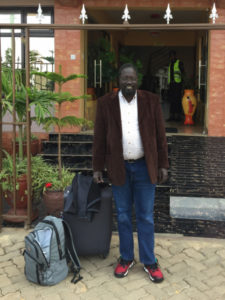 The next steps in Africa Sunrise Communities’ school-building project are underway. Executive Director Jacob Guot will arrive in South Sudan in a day or two. He will spend two weeks completing necessary steps for construction to begin. “I am filled with hope and also gratitude to our members and supporters,” said Guot as he prepared for his trip.It is the rainy season in South Sudan right now, so construction work is not feasible. But Jacob will take care of advance planning activities such as:
The next steps in Africa Sunrise Communities’ school-building project are underway. Executive Director Jacob Guot will arrive in South Sudan in a day or two. He will spend two weeks completing necessary steps for construction to begin. “I am filled with hope and also gratitude to our members and supporters,” said Guot as he prepared for his trip.It is the rainy season in South Sudan right now, so construction work is not feasible. But Jacob will take care of advance planning activities such as:
Board Vice-President Gabriel Achai explains, “These steps do not sound dramatic and Jacob will not return with photographs of new walls, but this is an important part of building a school.”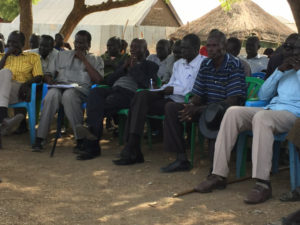 As a non-profit, ASC will partner with the local government in Bor Town and community groups, just like it partners with churches and individuals in America for support. “These partnerships are our strength, and a key to our success,” said ASC Board member Judy Metcalf.We wish Jacob Godspeed on this trip and look forward to further updates upon his return. __________________________________________Follow us on Facebook and Twitter (@africa_sunrise).
As a non-profit, ASC will partner with the local government in Bor Town and community groups, just like it partners with churches and individuals in America for support. “These partnerships are our strength, and a key to our success,” said ASC Board member Judy Metcalf.We wish Jacob Godspeed on this trip and look forward to further updates upon his return. __________________________________________Follow us on Facebook and Twitter (@africa_sunrise).


We heard about the shoeshine boy in Bor in one of Jacob’s accounts of his trip there last January. This enterprising youngster is one of Africa Sunrise’s prospective students, insofar as he has expressed an interest in being in school but said his parents cannot afford to send him to school right now.This is not surprising. UNICEF estimates that in 2016 as many as 70% of children in South Sudan are not in school. The circumstances causing this problem have only gotten worse. The issues include lack of schools, lack of pay and training for school teachers, and parents who do not have the ability to pay school fees. South Sudan faces many problems as a young country, but there is a great risk that a whole generation of South Sudanese children will miss receiving a proper education. This can only lead to longer term economic stagnation, unrest, and dependence on the international community. Will you help us build a school for “the shoeshine boy” and the next generation of leaders in South Sudan?
In their first meeting of 2018, the Africa Sunrise Communities (ASC) Board of Directors welcomed new members and approved conceptual plans for a new school in Bor, South Sudan. The school will be built on land recently acquired by ASC on the “Airport Road” in Bor. ASC announced their land acquisition on this page in April of this year, here. At their meeting on May 19th, the Board:
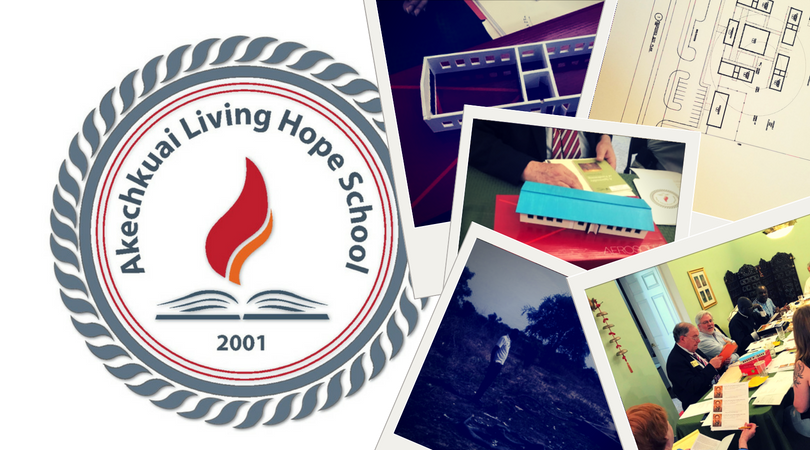 In other business, the Board welcomed new members and elected officers. The current Board consists of:
In other business, the Board welcomed new members and elected officers. The current Board consists of:
Executive Director Jacob Guot was made an ex officio member of the board, in anticipation of his moving to paid staff status later this year.At the close of the meeting, Kent Kroehler remarked upon “how honored and humbled my wife and I are to be recognized by ASC by naming a building for us. Our friendship with Jacob Guot is truly a remarkable friendship and we are excited to continue our journey with him and the people of South Sudan.”Board Vice-President and ‘Lost Boy’ Gabriel Kwai also noted that the naming of the school project for Akechkuai is significant for the community. He explained that Akechkuai was one of the first men in South Sudan to receive a school education and fought tirelessly for the independence of this young country, although he did not live to see Independence Day in 2011. “He is an inspiration to the youth of our country,” Gabriel said, “and naming our school for him will be an inspiration to the students who study there.”Updates on the school project and other Africa Sunrise projects will appear here regularly. To support our work with a financial contribution, go here. To get involved in other ways, contact us here._________________________________________________________Follow us on Facebook and Twitter (@africa_sunrise).
As you may recall from previous posts (January Trip — Part One — Fortune), Africa Sunrise Communities has acquired land in Bor, Jonglei State, South Sudan. We have some early photographs of the land to share today. There will be a few more images, of the cleared land, to share in the next few days.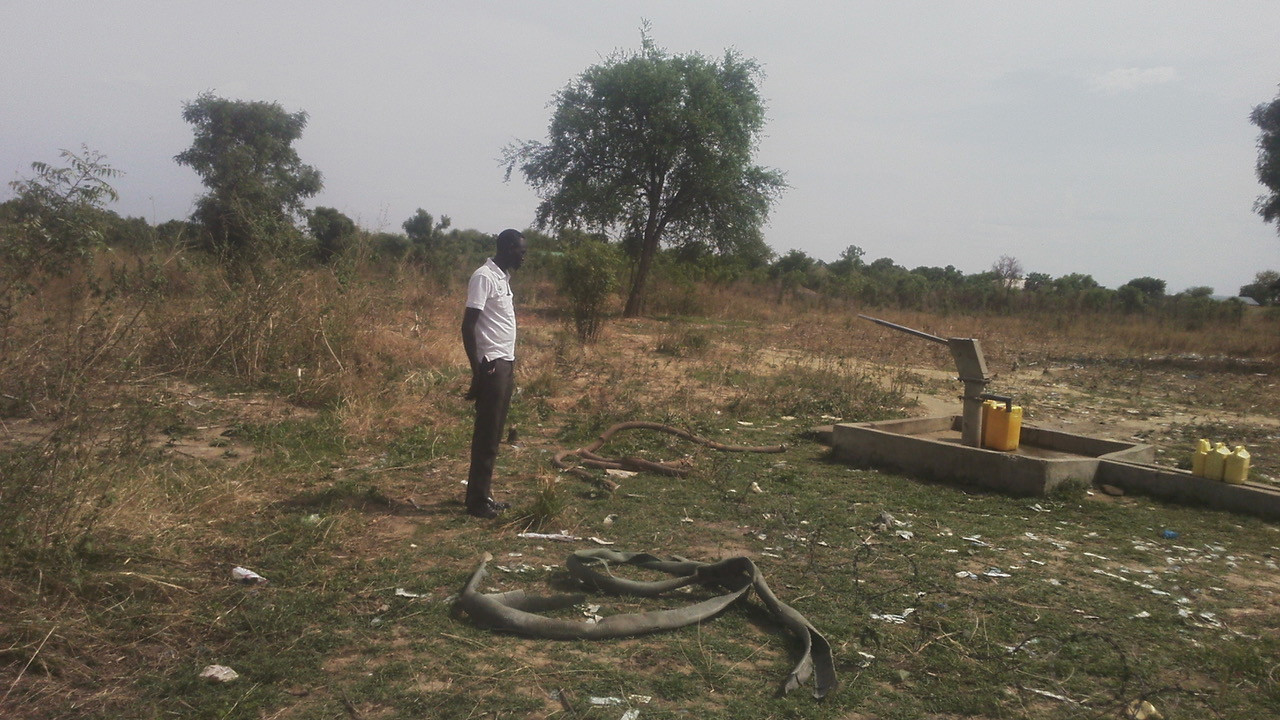 This is a parcel of about 2.5 acres on Airport Road, between the center of Bor town and the local airport. This is a growth area for the community, as businesses build along this corridor where visitors and business people travel to and from the airport.The water well and abandoned buildings in these pictures were left behind by a previous owner. He was not able to develop the property successfully. With your help, we have faith that our efforts will be more fruitful! In fact, we have a deadline, since our agreement with the local government is that we will improve the land before the end of the year (December 2018).
This is a parcel of about 2.5 acres on Airport Road, between the center of Bor town and the local airport. This is a growth area for the community, as businesses build along this corridor where visitors and business people travel to and from the airport.The water well and abandoned buildings in these pictures were left behind by a previous owner. He was not able to develop the property successfully. With your help, we have faith that our efforts will be more fruitful! In fact, we have a deadline, since our agreement with the local government is that we will improve the land before the end of the year (December 2018). 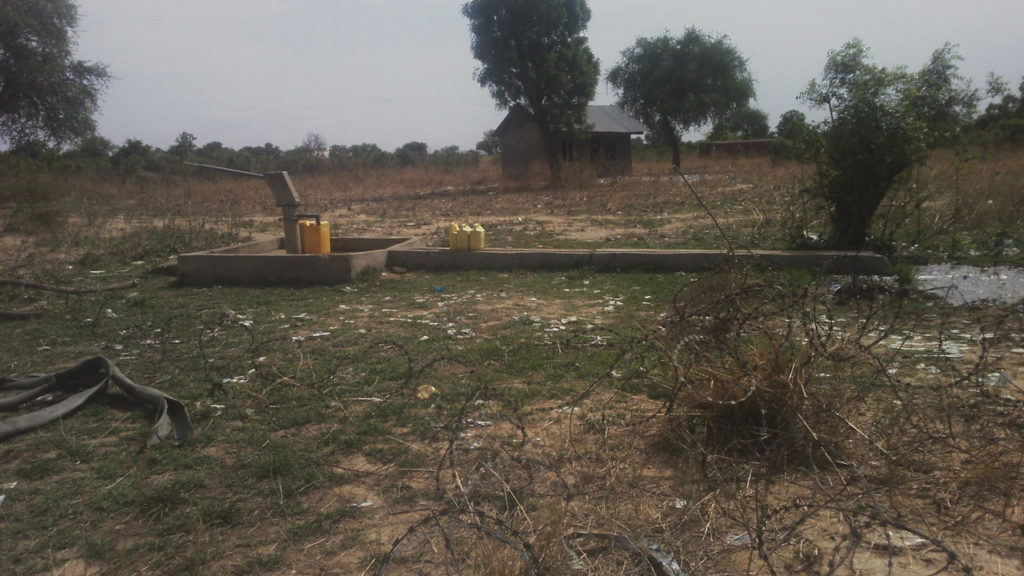 The local government is allocating this land to Africa Sunrise Communities as the community’s contribution to our new school. We are grateful for their generosity and we are working hard to fulfill our part of the bargain.We also owe a debt of gratitude to Heart of Africa, a US-based foundation that is providing financial and logistical support to Christian leaders in Africa who are undertaking projects to build their communities. You can learn more about their work on their website, link above.
The local government is allocating this land to Africa Sunrise Communities as the community’s contribution to our new school. We are grateful for their generosity and we are working hard to fulfill our part of the bargain.We also owe a debt of gratitude to Heart of Africa, a US-based foundation that is providing financial and logistical support to Christian leaders in Africa who are undertaking projects to build their communities. You can learn more about their work on their website, link above.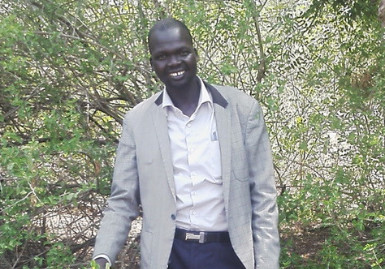 Another asset in the early phases of work is Jacob Guot’s cousin, John Lual Nyok, who is clearing the land, putting up a fence, and arranging for a sign to be erected. Thank you, John Lual!Back in the U.S., Jacob has engaged an architect who has already completed some preliminary plans for school buildings. When these plans have been approved and are ready for publication, we will share them with you.Until then, watch this space for photos of the cleared land, and consider supporting our work in South Sudan with a contribution on our Get Involved page. ________________________________You can also follow these posts on Facebook and on Twitter (@africa_sunrise).
Another asset in the early phases of work is Jacob Guot’s cousin, John Lual Nyok, who is clearing the land, putting up a fence, and arranging for a sign to be erected. Thank you, John Lual!Back in the U.S., Jacob has engaged an architect who has already completed some preliminary plans for school buildings. When these plans have been approved and are ready for publication, we will share them with you.Until then, watch this space for photos of the cleared land, and consider supporting our work in South Sudan with a contribution on our Get Involved page. ________________________________You can also follow these posts on Facebook and on Twitter (@africa_sunrise).
UPDATE:Here are pictures of the same land shown above, after it has been cleared. We are rushing to complete architectural drawings and hire a contractor to begin work on the school! How can you support us? See our Get Involved page.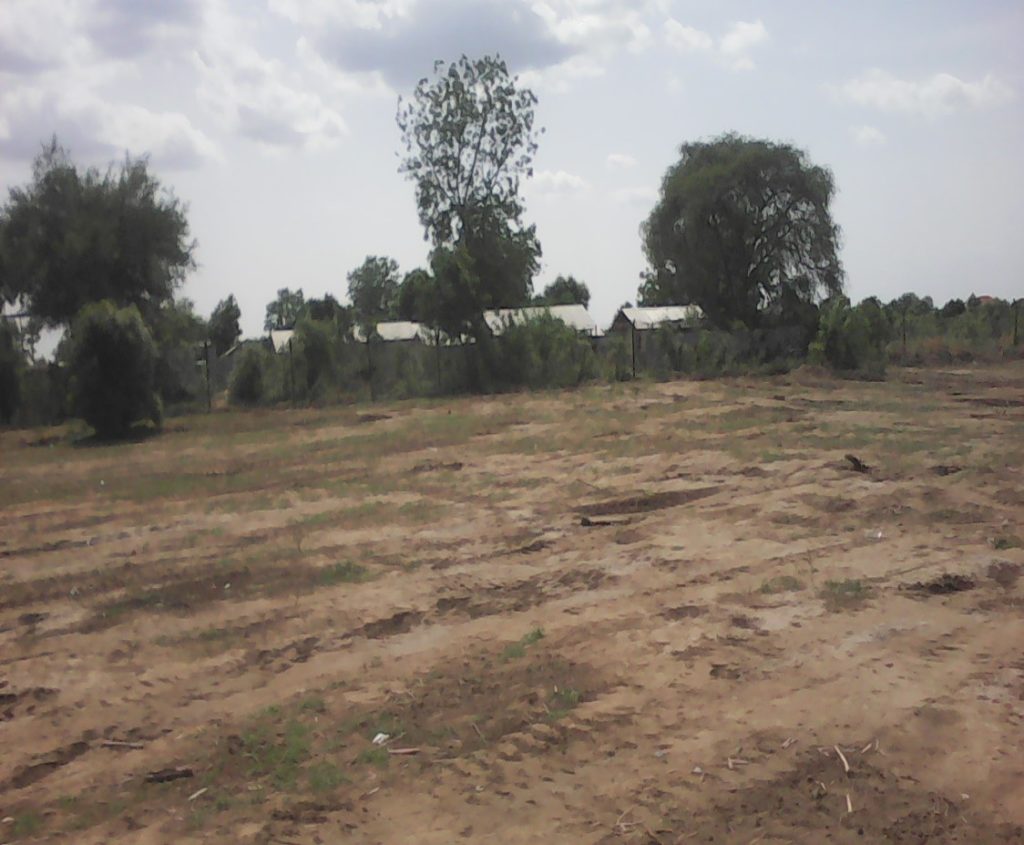
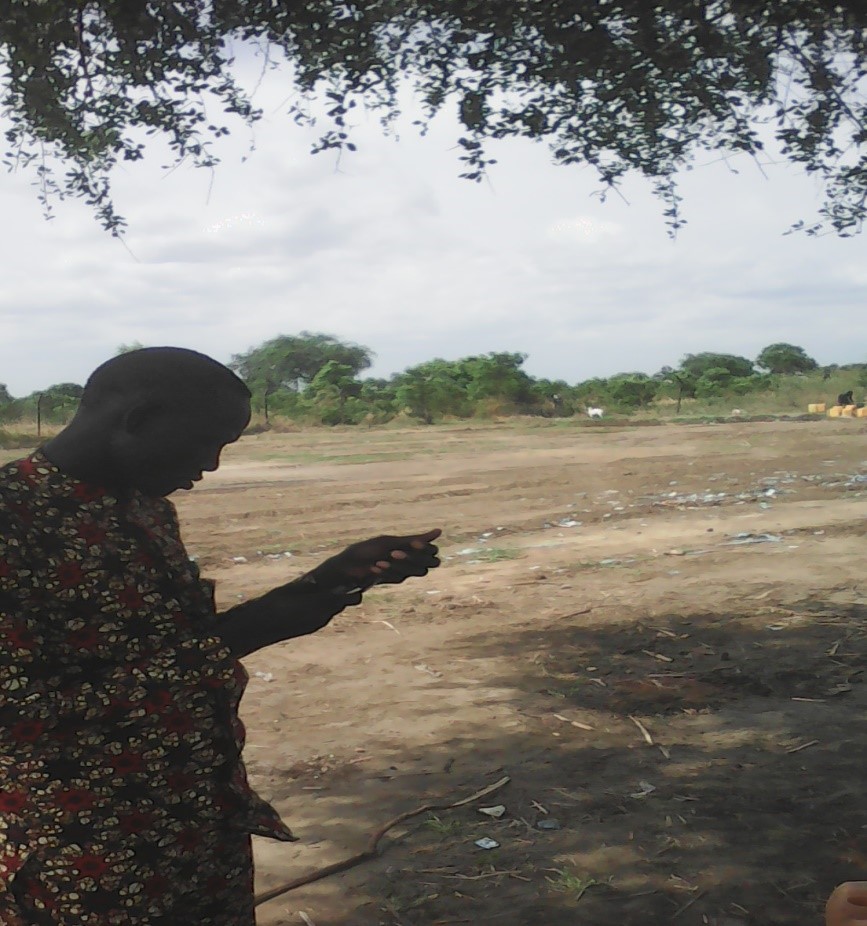
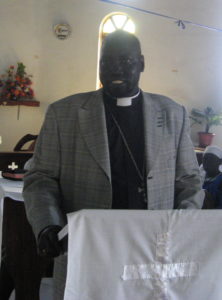 When I was a small boy in cattle camp, I had a dream that I would become a pastor among my people. In my dream I was wearing a white collar and standing before the church. I shared my dream with my cousins and they laughed at me. No one in our family had ever been a pastor.During the terrible times when I was running for my life, I didn’t think much about what I would do in the future. I just wanted to stay alive. I ran hundreds of miles to what we thought was a safe place in Ethiopia. Many died along the way. However, when I finally reached the crowded refugee camp, first in Ethiopia and then in Kenya, I had time again to consider my place in God’s plan. I learned to read so I could study the Bible, and I became a leader among the Sudanese people in the camp.I was chosen along with other “lost boys” to come to America in 2001, but I never forgot my dream. Seven years later, I returned to Sudan and part of my childhood dream became true – I received the white collar I had seen in my childhood dream. I was ordained in the Episcopal Church in Sudan, first as a deacon and then as a pastor.When I returned to Sudan, I was overwhelmed with the needs I saw there. Because of the danger caused by civil conflicts in South Sudan, I thought my original vision of returning to my homeland was not going to be possible soon. So, in June 2017 I travelled to northern Uganda where so many Sudanese people are staying in refugee camps. This seemed to be a good place to start a ministry, especially to children. However, there were so many obstacles – government requirements, proper licensing, and high costs – that I was discouraged. So, I asked God to show me where to begin.One of my heroes in the Old Testament is Nehemiah, because his story is so much like mine. His people had been taken from their homes in Israel and were living in foreign lands, just like the Sudanese people today. They wept because of what had become of the place they loved, as we weep today when we learn what is happening at home. The beautiful city of Jerusalem he had known as a boy was in ruins, its people scattered. My own city of Bor is not the pleasant place of my childhood, and has been scarred by years of fighting. Now people are returning to see what remains of their home land.Nehemiah is not only my hero. He is my model. I am planning to take the same steps he took to serve his people as they returned home. Thanks to a sister organization, Heart of Africa, I will be making a survey trip back to my home area in South Sudan in January 2018. I will be visiting the city of Bor to see how best to help my people. I do not know at this time what all the needs are or if the area is secure enough for me to return on a permanent basis. However, like Nehemiah, I plan to meet with leaders of the government and churches to see how Africa Sunrise Communities can help.If you believe in this vision, you can help, too. We need to build a team of partners who will stand with us in this venture. Our current need is for personal support. If we carry out this mission, it must be a team effort. I have been working as a home health care worker to provide for my family. However, this is getting me no closer to my vision. I need to take a bold step to fulfill the vision to which God has called me and for which I have been training.Here are two ways you can help:
When I was a small boy in cattle camp, I had a dream that I would become a pastor among my people. In my dream I was wearing a white collar and standing before the church. I shared my dream with my cousins and they laughed at me. No one in our family had ever been a pastor.During the terrible times when I was running for my life, I didn’t think much about what I would do in the future. I just wanted to stay alive. I ran hundreds of miles to what we thought was a safe place in Ethiopia. Many died along the way. However, when I finally reached the crowded refugee camp, first in Ethiopia and then in Kenya, I had time again to consider my place in God’s plan. I learned to read so I could study the Bible, and I became a leader among the Sudanese people in the camp.I was chosen along with other “lost boys” to come to America in 2001, but I never forgot my dream. Seven years later, I returned to Sudan and part of my childhood dream became true – I received the white collar I had seen in my childhood dream. I was ordained in the Episcopal Church in Sudan, first as a deacon and then as a pastor.When I returned to Sudan, I was overwhelmed with the needs I saw there. Because of the danger caused by civil conflicts in South Sudan, I thought my original vision of returning to my homeland was not going to be possible soon. So, in June 2017 I travelled to northern Uganda where so many Sudanese people are staying in refugee camps. This seemed to be a good place to start a ministry, especially to children. However, there were so many obstacles – government requirements, proper licensing, and high costs – that I was discouraged. So, I asked God to show me where to begin.One of my heroes in the Old Testament is Nehemiah, because his story is so much like mine. His people had been taken from their homes in Israel and were living in foreign lands, just like the Sudanese people today. They wept because of what had become of the place they loved, as we weep today when we learn what is happening at home. The beautiful city of Jerusalem he had known as a boy was in ruins, its people scattered. My own city of Bor is not the pleasant place of my childhood, and has been scarred by years of fighting. Now people are returning to see what remains of their home land.Nehemiah is not only my hero. He is my model. I am planning to take the same steps he took to serve his people as they returned home. Thanks to a sister organization, Heart of Africa, I will be making a survey trip back to my home area in South Sudan in January 2018. I will be visiting the city of Bor to see how best to help my people. I do not know at this time what all the needs are or if the area is secure enough for me to return on a permanent basis. However, like Nehemiah, I plan to meet with leaders of the government and churches to see how Africa Sunrise Communities can help.If you believe in this vision, you can help, too. We need to build a team of partners who will stand with us in this venture. Our current need is for personal support. If we carry out this mission, it must be a team effort. I have been working as a home health care worker to provide for my family. However, this is getting me no closer to my vision. I need to take a bold step to fulfill the vision to which God has called me and for which I have been training.Here are two ways you can help:
We are at the doorway to our ministry in South Sudan, and I am filled with gratitude for your willingness to listen to my story and to be our partners. Now I ask you to consider what your part in this endeavor might be. Your friend and fellow worker,Jacob Thon GuotExecutive Director, Africa Sunrise CommunitiesP.S. In Proverbs 19:18, God’s Word says, “Where there is no vision, the people perish.” I know that my people are perishing, and I know that I have a vision to help them see the Good News and God’s solutions to their problems.
 My trip to Uganda is now underway. I am going to Bweyale Refugee Camp to make a general assessment of the situation there. I will meet with leaders of the refugees to talk about their needs and to assess the children’s educational needs from pre-school to 12th grade. I need to know which agencies are working in education in the camp, what they are doing, and how I can partner with them. I will meet with three groups of leaders: Sudanese refugees (Dinka, Nuer, and others); local Ugandan civil authorities in the camp; and officials from the United Nations High Commission on Refugees (UNHCR).I am going to Kampala to register as a local organization in Uganda. I will register as Living Hope Africa, which will function as the local arm of Africa Sunrise Communities. Fundraising in the U.S. will continue to flow through Africa Sunrise Communities. A local organization gives me freedom to do work in Uganda as a US-based one will not allow me to work there.In Nairobi I will be visiting the family of refugees whom I am supporting.I will go to Juba, South Sudan, to learn about four orphaned Dinka children from my village of Bor. Their parents were killed during a conflict in Bor; they were abducted by the Murle tribe but handed back to the UNHCR during negotiations. The UN contacted me to see if I could support these children, who are in a UN refugee camp in Juba: one 5-year old, two 6-year-olds, and one 7-year-old.I will be helped by Lual, who is my cousin. He lives in Juba and knows how help me negotiate the various officials and departments I must meet with.Please pray for me during this trip, that I might be able to meet with the right people and make the right contacts, and that the next steps for Africa Sunrise Communities/Living Hope Africa will become clear.My trip to Uganda will cost approximately $7,500. This will take care of airfare, food, lodging, and ground transportation, visas, organization registration fees, etc. If you can help me meet these financial obligations, please send a check to Africa Sunrise Communities, PO Box 82, Wilmore, KY 40390 or visit our website at www.africasunrise.org/get-involved/ to give towards my trip. All gifts are tax deductible. Thank you for your prayers and your financial support.Jacob GuotExecutive Director and Founder
My trip to Uganda is now underway. I am going to Bweyale Refugee Camp to make a general assessment of the situation there. I will meet with leaders of the refugees to talk about their needs and to assess the children’s educational needs from pre-school to 12th grade. I need to know which agencies are working in education in the camp, what they are doing, and how I can partner with them. I will meet with three groups of leaders: Sudanese refugees (Dinka, Nuer, and others); local Ugandan civil authorities in the camp; and officials from the United Nations High Commission on Refugees (UNHCR).I am going to Kampala to register as a local organization in Uganda. I will register as Living Hope Africa, which will function as the local arm of Africa Sunrise Communities. Fundraising in the U.S. will continue to flow through Africa Sunrise Communities. A local organization gives me freedom to do work in Uganda as a US-based one will not allow me to work there.In Nairobi I will be visiting the family of refugees whom I am supporting.I will go to Juba, South Sudan, to learn about four orphaned Dinka children from my village of Bor. Their parents were killed during a conflict in Bor; they were abducted by the Murle tribe but handed back to the UNHCR during negotiations. The UN contacted me to see if I could support these children, who are in a UN refugee camp in Juba: one 5-year old, two 6-year-olds, and one 7-year-old.I will be helped by Lual, who is my cousin. He lives in Juba and knows how help me negotiate the various officials and departments I must meet with.Please pray for me during this trip, that I might be able to meet with the right people and make the right contacts, and that the next steps for Africa Sunrise Communities/Living Hope Africa will become clear.My trip to Uganda will cost approximately $7,500. This will take care of airfare, food, lodging, and ground transportation, visas, organization registration fees, etc. If you can help me meet these financial obligations, please send a check to Africa Sunrise Communities, PO Box 82, Wilmore, KY 40390 or visit our website at www.africasunrise.org/get-involved/ to give towards my trip. All gifts are tax deductible. Thank you for your prayers and your financial support.Jacob GuotExecutive Director and Founder
Fighting continues in South Sudan, which over the past 3 years has seen more than 1 million of its people fleeing the country, according to the United Nations refugee agency. Over 185,000 have fled since July alone. This does not include the 1.6 million of its citizens who are displaced within the country, having fled their homes due to the violence. These figures mean that 20% of South Sudan’s population, or 1 in 5 of its citizens, are counted as refugees. Many of these refugees have fled the South Sudanese capital city of Juba, which is in the south of the country. Over one-third of these went south to Uganda, but other neighboring African countries have also taken in hundreds of thousands of these refugees.The fighting began in December of 2013, when President Salva Kiir and former Vice President Machar, the most powerful members of their respective Dinka and Nuer ethnic groups, struggled for control of their country. Machar was eventually forced out and replaced by another Vice President, but Machar does not recognize this change in leadership, and so the bloodshed continues, between and even within ethnic groups. A cease-fire instituted in August 2015 was soon broken.A Worsening SituationOne of the leaders in the refugee camps has written to Jacob to report that the camps at Kirangdongo and Yumba have been closed. Food shortages are severe; lack of leadership is hindering food rations from getting to those who need them most.
Many of these refugees have fled the South Sudanese capital city of Juba, which is in the south of the country. Over one-third of these went south to Uganda, but other neighboring African countries have also taken in hundreds of thousands of these refugees.The fighting began in December of 2013, when President Salva Kiir and former Vice President Machar, the most powerful members of their respective Dinka and Nuer ethnic groups, struggled for control of their country. Machar was eventually forced out and replaced by another Vice President, but Machar does not recognize this change in leadership, and so the bloodshed continues, between and even within ethnic groups. A cease-fire instituted in August 2015 was soon broken.A Worsening SituationOne of the leaders in the refugee camps has written to Jacob to report that the camps at Kirangdongo and Yumba have been closed. Food shortages are severe; lack of leadership is hindering food rations from getting to those who need them most.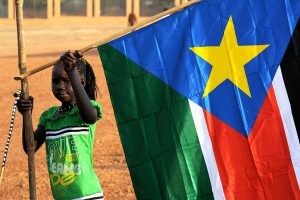 Many of those fleeing the violence are children who are alone. Their parents have been either killed or wounded and left behind as the children ran for their lives, or the families became separated in the confusion. This was the same situation in which Jacob Guot, founder of Africa Sunrise Communities, found himself when he became one of the “Lost Boys” of South Sudan, in earlier fighting. At the age of 7, he was forced to flee his village for his life and wander for thousands of miles over several years, before ending up in a Ugandan refugee camp. It was from there that he was brought to the United States, where he has since become an American citizen and obtained an education.Jacob is now working to raise funds for his organization to help with the plight of his fellow South Sudanese refugees in a particular refugee camp in Uganda. He is himself helping to support several children with funds to pay for education and school fees. His larger goal for Africa Sunrise Communities is for him to return to the Ugandan refugee camp and set up schools there for the children.
Many of those fleeing the violence are children who are alone. Their parents have been either killed or wounded and left behind as the children ran for their lives, or the families became separated in the confusion. This was the same situation in which Jacob Guot, founder of Africa Sunrise Communities, found himself when he became one of the “Lost Boys” of South Sudan, in earlier fighting. At the age of 7, he was forced to flee his village for his life and wander for thousands of miles over several years, before ending up in a Ugandan refugee camp. It was from there that he was brought to the United States, where he has since become an American citizen and obtained an education.Jacob is now working to raise funds for his organization to help with the plight of his fellow South Sudanese refugees in a particular refugee camp in Uganda. He is himself helping to support several children with funds to pay for education and school fees. His larger goal for Africa Sunrise Communities is for him to return to the Ugandan refugee camp and set up schools there for the children.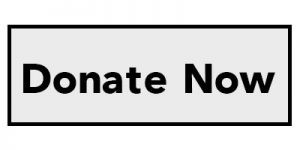 Please join in helping him to fulfill this goal. Your gifts are tax-deductible, as Africa Sunrise Communities is a recognized 501(c)(3) organization. Please visit the “Get Involved” section of this website to give.Blessings,President and Founder,Jacob Guot
Please join in helping him to fulfill this goal. Your gifts are tax-deductible, as Africa Sunrise Communities is a recognized 501(c)(3) organization. Please visit the “Get Involved” section of this website to give.Blessings,President and Founder,Jacob Guot
Nearly 100,000 South Sudanese fled from their homes into Uganda when political disputes within the ruling party in South Sudan led to the breakout of violence.Within the settlement camps in Uganda, South Sudanese refugees are using their agricultural skills to raise funds for their children’s school fees. Among these concerned parents is James Maker Ter. He works every day to clear weeds from his farm. During their holidays, his five children work alongside him to expand the land they are working. Although the United Nation refugee agency is supporting him, “I have to do more,” he says, “in order to support my family. I see this land has a lot of opportunities and I have decided to cultivate and I know doing this job will strengthen me.”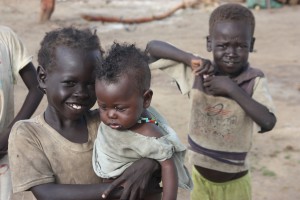 Last year he produced 50 bags of maize, each weighing around 25 pounds. He intends to produce more this year. Out of those 50 bags last year, he sold 20 of them to buy school uniforms for his children and to pay their medical bills.He is encouraging his fellow refugees in the displaced camps to take up their hoes and begin cultivation. Farming, he pointed out, does not require lots of capital. “When you produce more food, you will not have any problem. By engaging yourself into agriculture is likely to make you richer. If you sell clothes it may not work out in the hunger time, but if you have more grain stored and then your business can still boom,” said Maker.Another refugee, Mary Nyaber Koryom, who cares for 10 children in her house, says it has not been easy to provide for her children’s needs, like school uniforms and fees. “We have so many challenges to do this job. We lack tractors and buying pesticide become very expensive. We lack support to practice agriculture; we do this work for the sake of our own surviving in the camp,” she said.This is one of the two major thrusts of Africa Sunrise Communities – to help refugees in the Ugandan camps to take up gardening and agriculture, both for their own food source and for them to be able to afford schooling for their children. Your gift to our foundation can help to provide the means for these refugees to get started in providing for themselves and their families.(Information for this article was adapted from an article from the Sudan Tribune, March 6, 2016.)
Last year he produced 50 bags of maize, each weighing around 25 pounds. He intends to produce more this year. Out of those 50 bags last year, he sold 20 of them to buy school uniforms for his children and to pay their medical bills.He is encouraging his fellow refugees in the displaced camps to take up their hoes and begin cultivation. Farming, he pointed out, does not require lots of capital. “When you produce more food, you will not have any problem. By engaging yourself into agriculture is likely to make you richer. If you sell clothes it may not work out in the hunger time, but if you have more grain stored and then your business can still boom,” said Maker.Another refugee, Mary Nyaber Koryom, who cares for 10 children in her house, says it has not been easy to provide for her children’s needs, like school uniforms and fees. “We have so many challenges to do this job. We lack tractors and buying pesticide become very expensive. We lack support to practice agriculture; we do this work for the sake of our own surviving in the camp,” she said.This is one of the two major thrusts of Africa Sunrise Communities – to help refugees in the Ugandan camps to take up gardening and agriculture, both for their own food source and for them to be able to afford schooling for their children. Your gift to our foundation can help to provide the means for these refugees to get started in providing for themselves and their families.(Information for this article was adapted from an article from the Sudan Tribune, March 6, 2016.)
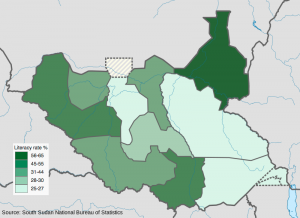 In the new nation of South Sudan, war has prevented fully one-half of the children from going to school.
In the new nation of South Sudan, war has prevented fully one-half of the children from going to school.
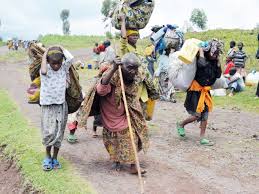 It seems South Sudan hasn’t seen peace since the creation of Adam and Eve. Its inhabitants may never see peace anytime soon, unless people of good conscience and benevolence would step in and help the most overlooked humans in the world. This part of the world has lost at least three generations to illiteracy due a deep-rooted civil war that started in the 1950’s as the result of oppression from the former Sudanese government of Arab Muslims.Nevertheless, South Sudan fought for decades and earned her long overdue independence from the north in 2011. Though free of its rule, there is still evidence that reveals the continuing influence of the largely Muslim country to the north. Influential elites from Sudan are determined to cause strife between southern tribes, which would allow them to seize power again. For more than 60 years, the north has tried to convert the Christian communities in South Sudan by force.This is the situation in which we at Africa Sunrise Communities (ASC) are dedicated to bringing peace. Through farming projects and education of all young South Sudanese irrespective of their tribes, we will foster reconciliation and restoration.The latest report from UN’s Refugee Agency has reported that a huge number of people have fled to the refugee camps mainly in Uganda as a result of renewed fighting in South Sudan. These refugees are women and children that have been uprooted from their country as a result of serious insecurity. They are literally running for their lives, leaving everything they own behind and living in camps with nothing.In these camps, they wait for food from the UN, which is scant and lacking in nutrition. The children are unable to receive education without funding. This is where Africa Sunrise Communities will be working to fill the gaps by providing gardening plots to encourage teamwork between tribes as well as a sustainable source of food. As we work to reconcile the older generations, we will educate the younger to raise up a generation that it educated and invested in bettering their country together.Written by Gabriel KwaiTreasurer and Board Member
It seems South Sudan hasn’t seen peace since the creation of Adam and Eve. Its inhabitants may never see peace anytime soon, unless people of good conscience and benevolence would step in and help the most overlooked humans in the world. This part of the world has lost at least three generations to illiteracy due a deep-rooted civil war that started in the 1950’s as the result of oppression from the former Sudanese government of Arab Muslims.Nevertheless, South Sudan fought for decades and earned her long overdue independence from the north in 2011. Though free of its rule, there is still evidence that reveals the continuing influence of the largely Muslim country to the north. Influential elites from Sudan are determined to cause strife between southern tribes, which would allow them to seize power again. For more than 60 years, the north has tried to convert the Christian communities in South Sudan by force.This is the situation in which we at Africa Sunrise Communities (ASC) are dedicated to bringing peace. Through farming projects and education of all young South Sudanese irrespective of their tribes, we will foster reconciliation and restoration.The latest report from UN’s Refugee Agency has reported that a huge number of people have fled to the refugee camps mainly in Uganda as a result of renewed fighting in South Sudan. These refugees are women and children that have been uprooted from their country as a result of serious insecurity. They are literally running for their lives, leaving everything they own behind and living in camps with nothing.In these camps, they wait for food from the UN, which is scant and lacking in nutrition. The children are unable to receive education without funding. This is where Africa Sunrise Communities will be working to fill the gaps by providing gardening plots to encourage teamwork between tribes as well as a sustainable source of food. As we work to reconcile the older generations, we will educate the younger to raise up a generation that it educated and invested in bettering their country together.Written by Gabriel KwaiTreasurer and Board Member